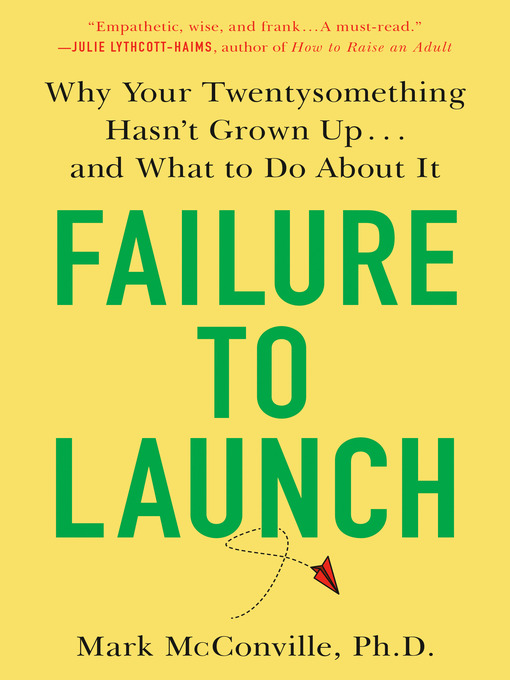
In Dr. Mark McConville's decades of experience as a family clinical psychologist, perhaps no problem has been more fraught than that of young adults who fail to successfully transition from adolescence into adulthood. These kids—technically adults—just can't get it together: They can't hold a job, they struggle to develop meaningful relationships, and they often end up back in their parents' spare bedroom or on the couch. In fact, studies show that 1 in 4 Americans aged 25 to 34 neither work nor attend school, and it's a problem that spans all socioeconomic and geographic boundaries.
McConville investigates the root causes of this problem: Why are modern kids "failing to launch" in ever-increasing numbers? The key, McConville has found, is that they are struggling with three critical skills that are necessary to make the transition from childhood to adulthood—finding a sense of purpose, developing administrative responsibility, and cultivating interdependence. In Failure to Launch, McConville breaks these down into achievable, accessible goals and offers a practical guide for the whole family, to help parents instill those skills in their young adults—and to get their kids into the real world, ready to start their lives.
-
Creators
-
Publisher
-
Release date
January 7, 2020 -
Formats
-
Kindle Book
-
OverDrive Read
- ISBN: 9780525542209
-
EPUB ebook
- ISBN: 9780525542209
- File size: 730 KB
-
-
Accessibility
-
Languages
- English
-
Reviews

Loading
Formats
- Kindle Book
- OverDrive Read
- EPUB ebook
Languages
- English
Why is availability limited?
×Availability can change throughout the month based on the library's budget. You can still place a hold on the title, and your hold will be automatically filled as soon as the title is available again.
The Kindle Book format for this title is not supported on:
×Read-along ebook
×The OverDrive Read format of this ebook has professional narration that plays while you read in your browser. Learn more here.